ESBE IN PARTNERSHIP WITH WHY BAG
2023-11-07
At ESBE, we value people. Our humanistic philosophy has roots that extend back more than a century, and we’ve anchored the word ‘Compassion in our core values. ESBE’s compassion takes on various forms. Often, we support well-known international organizations like UNHCR, Save the Children, and the Childhood Cancer Foundation. Other times, we serve as a private complement to make Reftele a more attractive community, such as by creating opportunities for dentists and housing growth. And sometimes, opportunities arise when we choose to make a specific effort to help those in need. Most recently, we did so through WHY BAG.
A charitable effort can be born by chance
Anders Nordangård from Värnamo is sitting at a roadside restaurant along the E4 highway in Sweden. One of the parked trucks bears Romanian license plates, and Anders, who is involved in charity work in Romania, starts to think.
A truck tarpaulin must be durable since it endures a lot. What if we could recycle used tarpaulins and turn them into bags?
Bags are something that Anders has worked with his entire life, and soon the plans are set in motion. Anders contacts a good friend who is the CEO of a company that transports goods across Europe. This is where the idea for a sustainable initiative that could fit into their existing charity work in Romania is born.
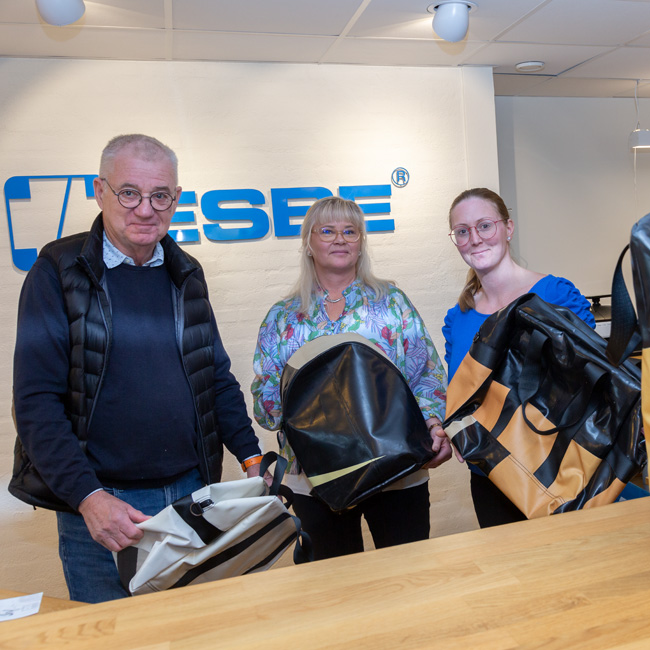
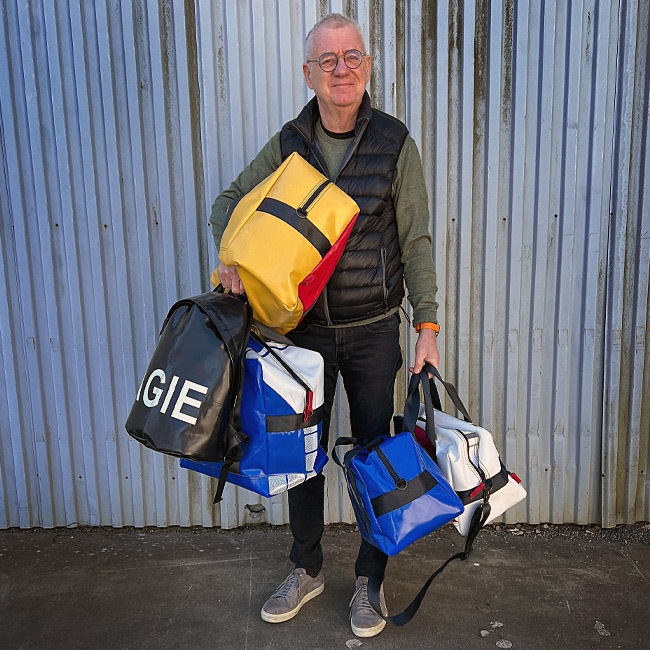
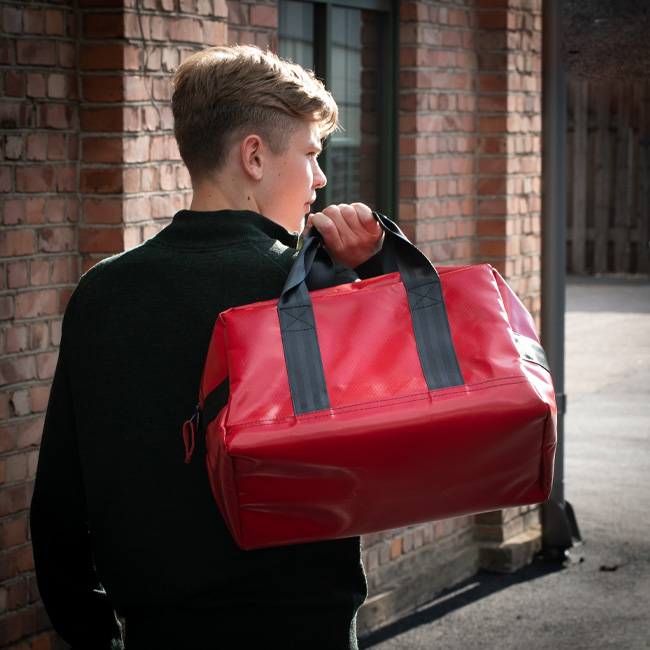
Networks RomaniaWHY BAG When ESBE heard about WHY BAG and how a bag purchase can make a significant difference for a Romani family, they invited Anders Nordangård to the company to showcase the product range. To boost sales, ESBE sponsored each bag with a 50% discount. This meant that employees could purchase bags at half price. In the picture to the left: Anders Nordangård, Annelie Westman, and Cajsa Roos.

Some of the seamstresses who create the WHY bags. The factory in Romania currently employs about 40 people, who, in addition to bag production, also perform other types of contract manufacturing.
This is WHY BAG
A truck tarpaulin is tested over thousands of miles on European roads. The tarpaulin fabric endures scorching sun, hail, rain, snow, and freezing cold. At WHY BAG, this sturdy tarpaulin fabric gets a new lease on life. The recycled fabric is washed, designed, and hand-sewn into functional toiletry bags, sports bags, and backpacks. It’s not just the tarpaulin fabric that gets recycled. The seatbelt industry provides leftover materials for bag production, and the bags are equipped with extremely durable handles. The craftsmanship takes place in a factory run by Networks Romania, and through this work, Romani people break generations of poverty.
Networks Romania is a charitable organization that has been assisting Romani people on-site in Romania for over twenty years. By providing people with employment, their dignity and livelihoods are restored. The organization’s mission is to give people hope, as expressed on the WHY BAG website:
“Hope for the individual and the family. This is done concretely by giving people: Education, Dignity, and Work. Each bag from WHY carries a piece of hope. Hope for the future.”
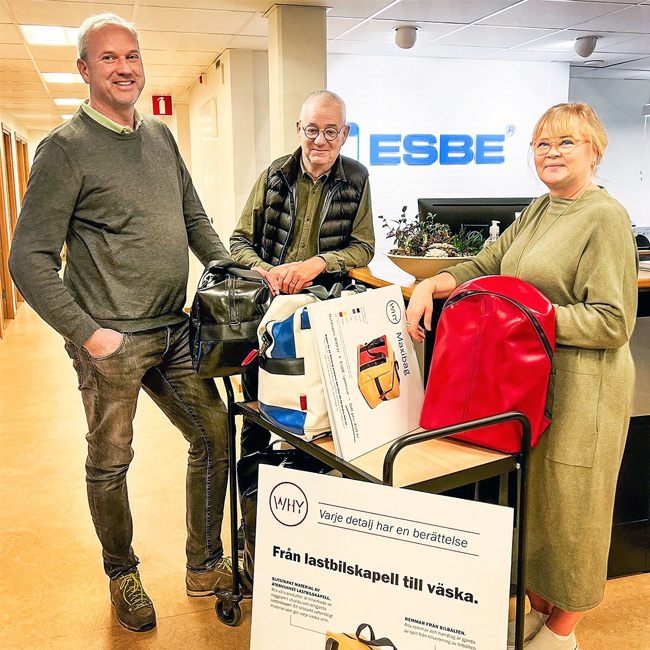
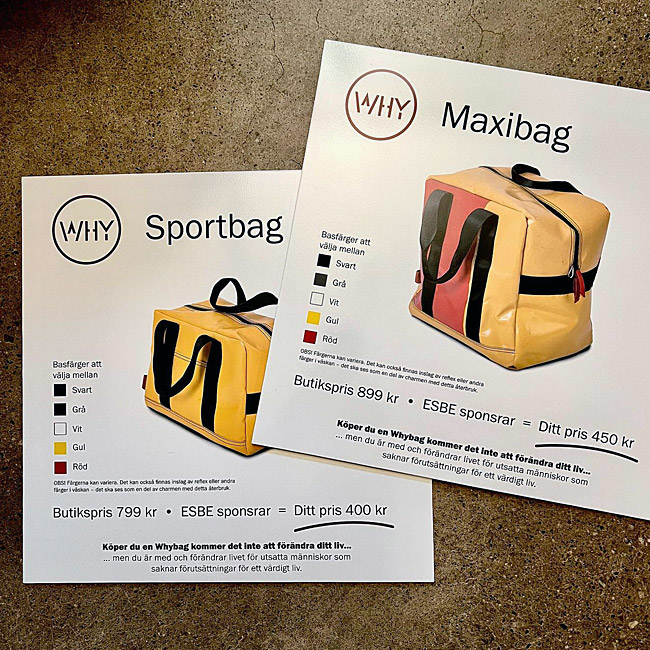
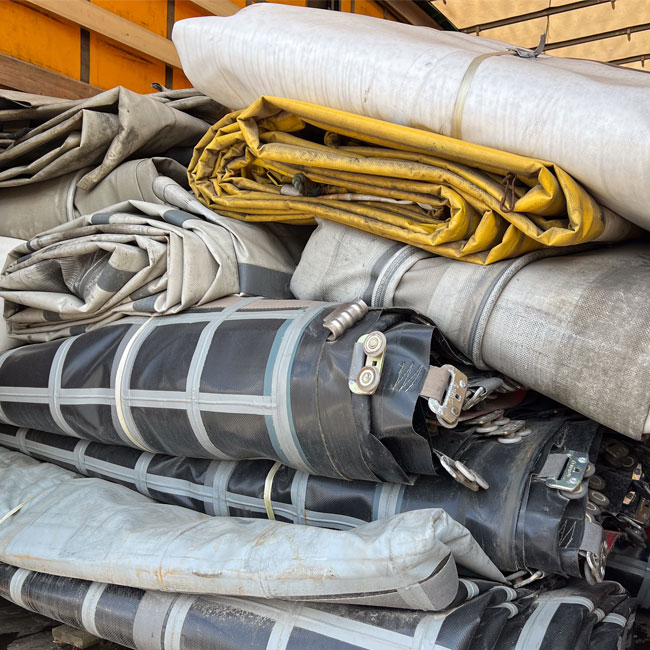
The key to the development of the Romani community is jobs and education. In addition to working on WHY bags and other forms of employment, Network Romania also offers a scholarship fund. The scholarship program is aimed at young Romani individuals who are already part of Network Romania’s network and who have the potential and desire to pursue further education. Since its inception in 2016, 80 scholarships have been awarded. In the academic year 2024, the first-ever recipients will continue their college studies!
By purchasing a WHY bag, you contribute to providing education, empowerment, and employment to one of Europe’s most vulnerable ethnic groups.
Together, we create a better world!
Would you like to buy a bag?
http://whybag.se/
Related links
ESBE Supports UNHCR and Save the Children »
ESBE donates money to Save the Children »
ESBE and corporate social responsibility »




















